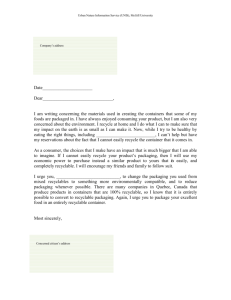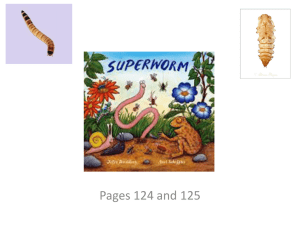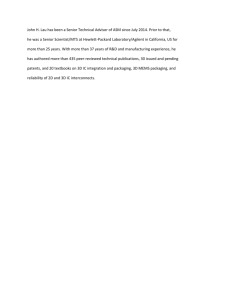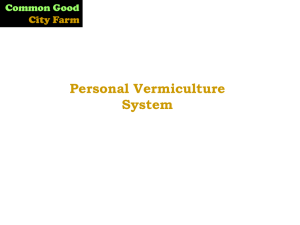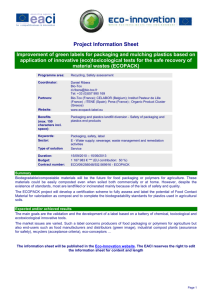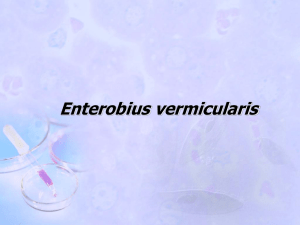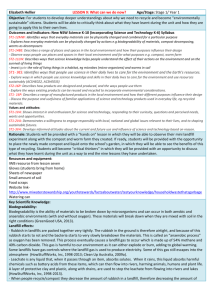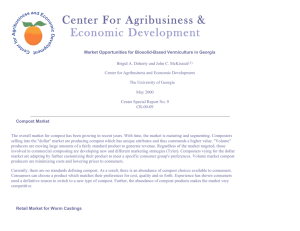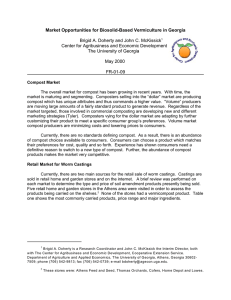School Waste Minimisation Education Programme
advertisement
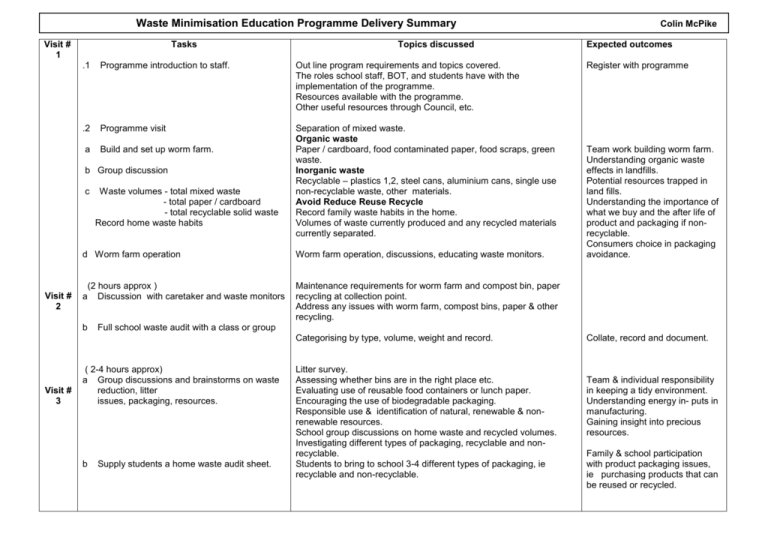
Waste Minimisation Education Programme Delivery Summary Visit # 1 Tasks .1 Programme introduction to staff. Out line program requirements and topics covered. The roles school staff, BOT, and students have with the implementation of the programme. Resources available with the programme. Other useful resources through Council, etc. .2 Programme visit a Build and set up worm farm. Separation of mixed waste. Organic waste Paper / cardboard, food contaminated paper, food scraps, green waste. Inorganic waste Recyclable – plastics 1,2, steel cans, aluminium cans, single use non-recyclable waste, other materials. Avoid Reduce Reuse Recycle Record family waste habits in the home. Volumes of waste currently produced and any recycled materials currently separated. b Group discussion c Visit # 2 Topics discussed Waste volumes - total mixed waste - total paper / cardboard - total recyclable solid waste Record home waste habits d Worm farm operation Worm farm operation, discussions, educating waste monitors. (2 hours approx ) a Discussion with caretaker and waste monitors Maintenance requirements for worm farm and compost bin, paper recycling at collection point. Address any issues with worm farm, compost bins, paper & other recycling. b ( 2-4 hours approx) a Group discussions and brainstorms on waste reduction, litter issues, packaging, resources. b Expected outcomes Register with programme Team work building worm farm. Understanding organic waste effects in landfills. Potential resources trapped in land fills. Understanding the importance of what we buy and the after life of product and packaging if nonrecyclable. Consumers choice in packaging avoidance. Full school waste audit with a class or group Categorising by type, volume, weight and record. Visit # 3 Colin McPike Supply students a home waste audit sheet. Litter survey. Assessing whether bins are in the right place etc. Evaluating use of reusable food containers or lunch paper. Encouraging the use of biodegradable packaging. Responsible use & identification of natural, renewable & nonrenewable resources. School group discussions on home waste and recycled volumes. Investigating different types of packaging, recyclable and nonrecyclable. Students to bring to school 3-4 different types of packaging, ie recyclable and non-recyclable. Collate, record and document. Team & individual responsibility in keeping a tidy environment. Understanding energy in- puts in manufacturing. Gaining insight into precious resources. Family & school participation with product packaging issues, ie purchasing products that can be reused or recycled. Waste Minimisation Education Programme Delivery Summary Tasks Colin McPike Expected outcomes Topics discussed c Check all school recycling initiatives with monitors and caretaker. d Supply information & show examples of products on bio-degradable forms of packaging. Visit # 4 ( 2-3 hours ) a Check all school recycling initiatives with monitors and caretaker. b Group discussion on hazardous waste. Visit # 5 Increases in organic waste & feeding procedures. Identify companies using excessive non-recyclable packaging. Write letters to companies & inform them of alternatives now available. Discuss worm farm & compost system requirements between term breaks and summer holiday period. ie watering and feeding procedures. Group discussion on hazardous products and suitable alternatives. Hazardous waste disposal methods. c Design worm farm & compost bin for home use Groups indentify the requirements for both systems. Systems to be made reusing materials and the set up and maintenance requirements. approx 12-14 months ( 2-4 hours) a Worm farm castings extraction Group involvement with the teachers, students, caretaker in worm casting removal. Castings screened, then used in the schools gardens or diluted with water and sold as a liquid fertiliser in reused milk bottles as a fundraiser. b Design a label for the liquid castings bottles. Businesses may change to a recoverable material. Caretaker & teachers understanding of the worm farms basic needs. Understanding the implications of incorrect disposal methods. Staff & students should understand the basic needs and uses of each system. All participants involved, Awareness of the cycle from waste to resource Families may also try techniques at home. Students are to design a label with a product name with details on dilution and usage etc. c Second school waste audit Weight and volumes of each waste type / collate and compare with the 1st audit. Record and document. Telephone: Fax: Mobile: Email: 09 292 7759 09 292 7039 021 116 6124 info@wormsRus.co.nz The programme should see a reduction in all waste categories.
